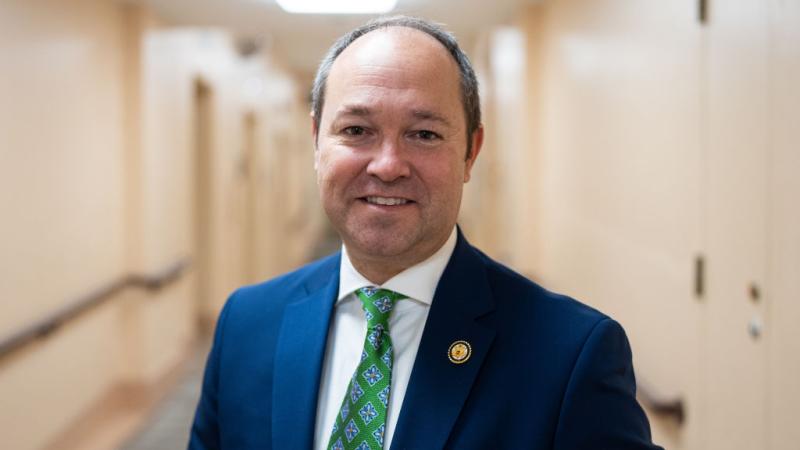Democrat senators reintroduce bill to declare racism public health crisis
Two of the senators who reintroduced the resolution are also sponsoring a bill to establish a federal commission to study slavery reparations.
Democratic Sens. Cory Booker of New Jersey, Alex Padilla of California and Sherrod Brown of Ohio have reintroduced a Senate resolution that would "declare racism a public health crisis."
Brown and Padilla are also cosponsors of the Commission to Study and Develop Reparation Proposals for African Americans Act that would establish a federal commission to study slavery reparations. Booker, the sponsor of the reparations study bill, wrote a letter to President Biden in June calling on him to support the commission.
Brown, Booker, and then-Sen. Kamala Harris had originally introduced the legislation to deem racism a public health crisis in July 2020, and Booker and Padilla reintroduced it in April 2021 and again on Tuesday.
"We will not make progress until we acknowledge and address all of the ways that centuries of racism and oppression have harmed Black and brown Americans," said Brown in a statement. "This resolution is an important step toward recognizing the racial disparities in healthcare that have existed for far too long while also outlining concrete action we can take now to help reverse them. Though this resolution is not a solution in and of itself, it will help to lay the foundation for change that is continually subverted by and for the status quo. I am proud to join my colleagues in introducing this important resolution."
Booker echoed Brown's reasoning for declaring racism a public health crisis.
"For too long, communities of color have suffered disproportionately from countless illnesses and conditions, from maternal and infant mortality to chronic diseases," said Booker in a statement. "These health inequities are the direct result of centuries of racist policies that have disenfranchised, disinvested, and disrespected Black, Indigenous, and other communities of color. Declaring racism a public health crisis is a crucial step toward addressing the deep-rooted and systemic inequities that continue to exacerbate health disparities in our nation."
According to a press release, the resolution also serves to highlight the "effects of systemic racism on the health and wellness of communities of color, resulting in shorter life expectancy, worsened health outcomes, and enhanced exposure to harmful or dangerous environments."
The release also said the resolution "encourages concrete action to address health disparities and inequity across all sectors in society."
















